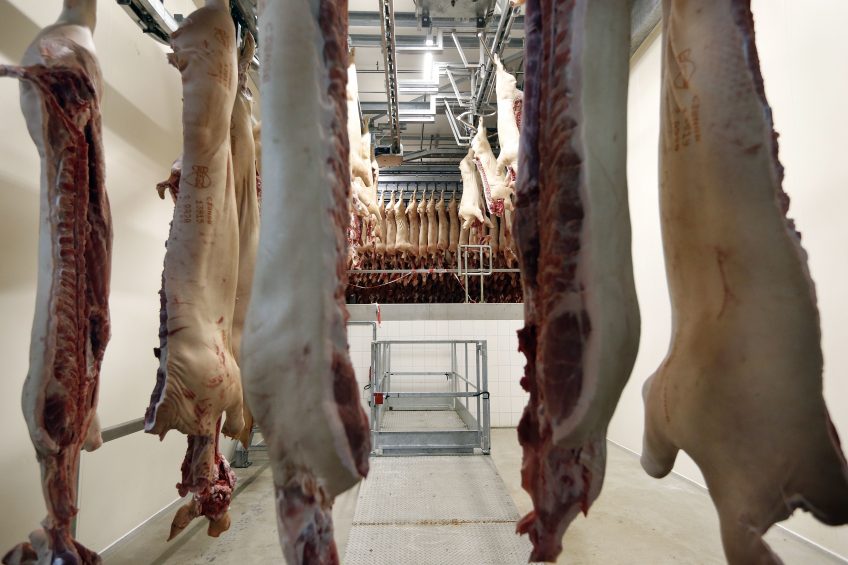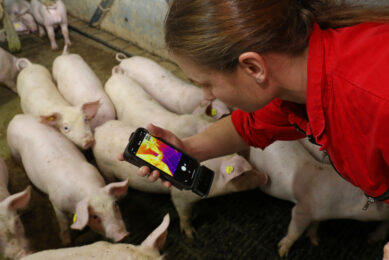Political action after pig abuse in slaughterhouse

Recent reports of pigs being abused in a Belgian slaughterhouse have led to a storm of actions and reactions at public and parliamentary levels in both Belgium and the Netherlands.
On March 23, animal welfare organisation Animal Rights revealed a video about animal maltreatment in a slaughterplant in Tielt, in the west of Belgium. On the video, pigs are being kicked and beaten. Also, they are being released into the slaughter process without being stunned – in one case an animal that is still alive is dropped into a hot water basin for dehairing. The footage can be viewed on the Animal Rights website.
Animal Rights said one member of their organisation managed to be employed by the slaughterplant. He had gathered over 100 hours of footage, having worked there for about a month.
The slaughterplant is part of the Debra Group, one of Belgium’s larger pork meatpackers, with on average 35,000 pigs being processed every week and in total 350 employees.
Suspending the slaughterplant
On the basis of the video, and a subsequent inspection, Ben Weyts, the Flemish minister of Mobility and Public Works, Brussels Periphery, Tourism and Animal Welfare, ordered the suspension of the pig slaughterplant in Tielt.
Flemish retailer Delhaize also took action, announcing it would immediately stop cooperating with the Debra Group.
Belgian farmers’ syndicate in shock
The Belgian general farmers’ syndicate (ABS) was quoted to be ‘in shock’. “Every pig producer feels shame and doesn’t understand seeing so much suffering with the pigs.”
Spokesman Bart Vergote told the Flemish Information Centre for Agri- & Horticulture: “Our image had improved in recent years with the common effort of so many pig producers. That work is now down the drain, we are back at square one.”
Call for camera surveillance
Also in the neighbouring Netherlands, the affair has stirred debate, as some of the meat of the slaughterhouse was exported north. Martijn van Dam, state secretary for Economic Affairs, called for camera surveillance in Dutch slaughterhouses.
In parliament, he said that soon, he will enter discussions with meatpackers in the Netherlands about the question whether or not they are prepared to voluntarily install cameras and to make this footage available for inspection. Enforcing cameras by law would be difficult to arrange, he said.
Acting more transparently in the future
Van Dam denounced the images being terrible, horrifying and making him nauseous. “I just can’t understand that people do this and others let this happen.” He complimented his Flemish colleague for having suspended the slaughterhouse’s business.
He expected societal pressure as a result of the publication of the Belgian footage will motivate slaughterhouses to act more transparently, to show that slaughter process in the country is conducted carefully and respectfully. He expects to report back to parliament by May 1.











